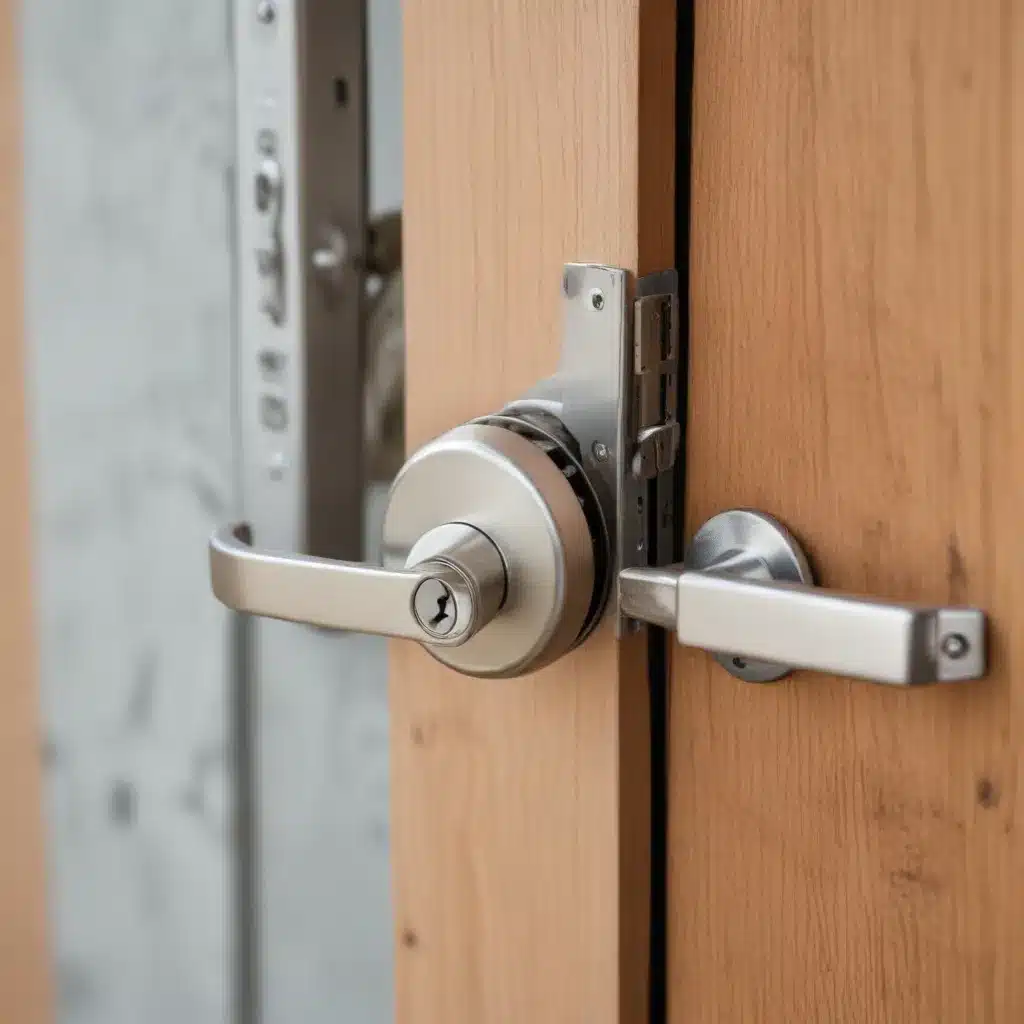
As an experienced locksmith serving the Washington, DC area, I’ve witnessed firsthand the growing need for robust security measures to safeguard businesses against the ever-evolving landscape of fraudulent activities. In this comprehensive article, we’ll delve into the critical importance of lock security, explore common fraud tactics targeting commercial locks, and unveil strategies to fortify your business against these threats.
Understanding Lock Vulnerabilities
Locks are the first line of defense against unauthorized entry, but they can also be susceptible to various fraudulent schemes if not properly secured. Fraudsters are constantly devising new ways to circumvent lock systems, whether through physical tampering, lock picking, or exploiting vulnerabilities in electronic access controls.
Common Lock-related Fraud Tactics
One of the most prevalent lock-related fraud tactics is the use of counterfeit keys or lock picks to gain unauthorized access. Criminals may attempt to duplicate keys, create master keys, or employ sophisticated lock-picking techniques to bypass your security measures. Additionally, they may target electronic access systems by hacking into the control panel or spoofing access credentials.
Another insidious fraud tactic is the impersonation of legitimate service providers, such as locksmiths or security technicians. These individuals may claim the need to “inspect” or “upgrade” your locks, only to compromise your security and steal sensitive information or valuables.
Identifying Suspicious Lock Behavior
Vigilance is key when it comes to detecting potential lock-related fraud. Be on the lookout for any unusual activity around your business’s locks, such as:
* Unfamiliar individuals loitering near your entrance
* Attempts to forcibly open or manipulate your locks
* Unexpected requests for access or lock servicing from unknown parties
* Discrepancies in lock functionality or unusual wear and tear
Implementing Tamper-resistant Locks
To mitigate the risk of lock-related fraud, consider upgrading to high-security, tamper-resistant lock systems. These advanced locks incorporate features like pin-and-tumbler mechanisms, restricted key blanks, and electronic access controls that make it exponentially more difficult for criminals to bypass your security.
Proactive Lock Maintenance
Maintaining the integrity of your locks is essential for preventing fraud and ensuring the overall security of your business. Regularly scheduled inspections and upgrades can help identify and address vulnerabilities before they can be exploited.
Routine Lock Inspections
Implement a comprehensive lock inspection program, conducted by qualified locksmiths, to assess the condition and functionality of your business’s locks. These inspections should cover:
* Checking for signs of tampering or wear
* Verifying that all locks are properly installed and configured
* Ensuring that access credentials (keys, keycards, etc.) are properly managed and accounted for
Upgrading to Secure Lock Systems
As technology advances, so too do the security features of modern lock systems. Upgrading to more sophisticated locks, such as high-security cylinders, electronic access controls, or biometric readers, can significantly enhance your protection against fraudulent activities.
Proper Lock Installation and Configuration
Ensure that your locks are installed and configured correctly by experienced locksmiths. Improper installation or configuration can create vulnerabilities that fraudsters may exploit. Consult with your local locksmith to ensure that your lock systems are optimized for maximum security.
Protecting Against Lock Tampering
Safeguarding your business’s locks extends beyond the locks themselves. Implementing comprehensive physical security measures and employee training can further bolster your defenses against lock-related fraud.
Physical Security Measures
Complement your lock systems with robust physical security features, such as:
* Reinforced doors and frames to resist forced entry
* Surveillance cameras to monitor access points
* Adequate lighting around entrances and high-risk areas
Monitoring and Alarm Systems
Integrate your lock systems with advanced monitoring and alarm systems that can detect and alert you to any suspicious activity or attempted breaches. These systems can provide real-time notifications and facilitate a swift response to potential incidents.
Employee Training on Lock Protocols
Educate your employees on the importance of lock security and the proper protocols for managing access credentials, reporting suspicious behavior, and responding to potential lock-related incidents. Empower your staff to be vigilant and proactive in safeguarding your business.
Mitigating the Impact of Lock Breaches
Despite your best efforts, the possibility of a lock-related breach cannot be entirely eliminated. Having a comprehensive incident response plan in place can help you mitigate the impact and ensure the continuity of your business operations.
Incident Response Planning
Develop a detailed incident response plan that outlines the steps to be taken in the event of a lock-related breach. This plan should cover:
* Immediate lock changes or replacements
* Secure data backup and recovery procedures
* Notification protocols for employees, customers, and relevant authorities
Backup and Recovery Strategies
Implement robust backup and recovery strategies to ensure the availability of your critical data and systems in the aftermath of a lock-related incident. This may include offsite data storage, redundant access controls, and regular system backups.
Communicating Lock Breach Events
In the event of a lock breach, it’s crucial to communicate the incident to your employees, customers, and any other affected parties in a timely and transparent manner. This can help maintain trust, mitigate reputational damage, and facilitate the implementation of appropriate security measures.
As an experienced locksmith in the Washington, DC area, I understand the importance of robust lock security in safeguarding your business. By implementing the strategies outlined in this article, you can take proactive steps to recognize and prevent fraudulent practices targeting your commercial locks. Remember, the security of your business and your customers’ trust is paramount, and a comprehensive approach to lock security is essential for long-term success and resilience.
For more information or to schedule a consultation with our team of experts, please visit https://www.locallocksmithwashingtondc.com/. We are committed to empowering businesses in the DC area with the tools and knowledge needed to fortify their lock security and protect against the ever-evolving threat of fraud.


